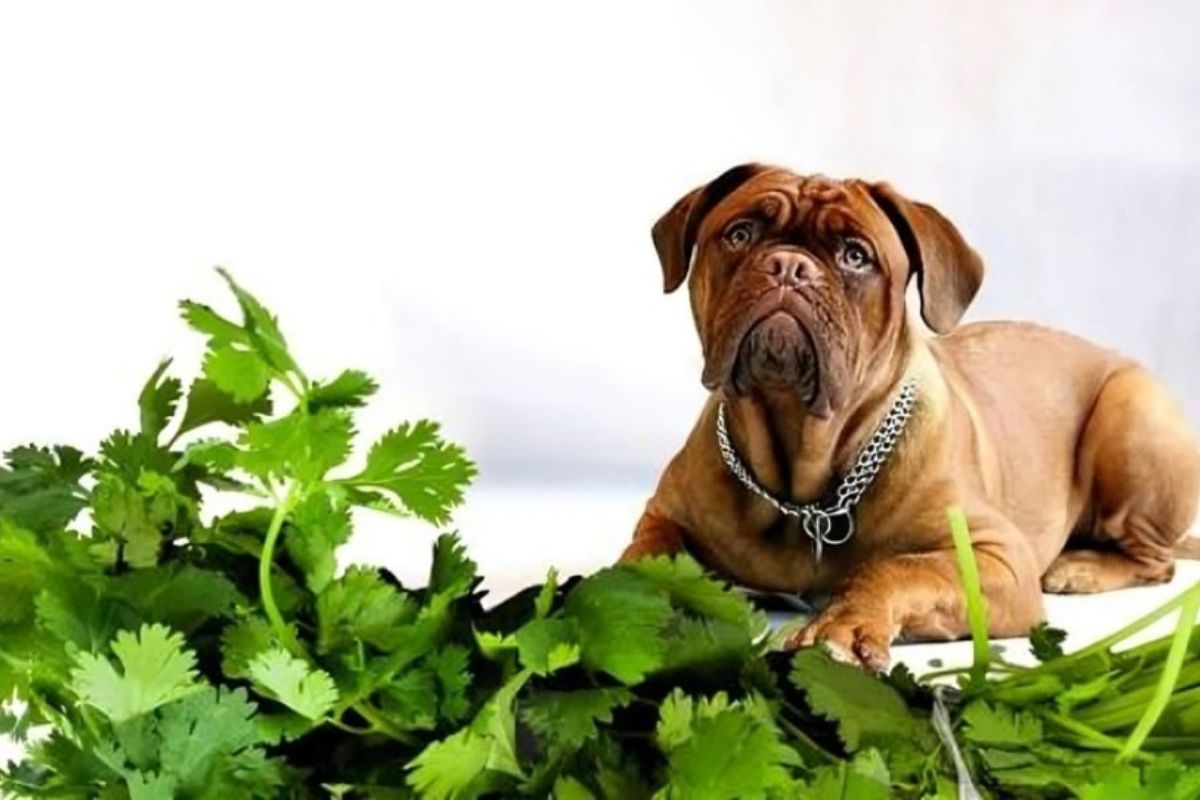Can Dogs Eat Cilantro? Benefits, Risks and Alternatives
Can Dogs Eat Cilantro?
Popular herb used in many different cuisines worldwide, cilantro—also known as coriander—is found From salsas to salads, its fresh, sharp taste gives foods a distinctive zest. If you adore this herb, though, you may question if it is okay for your dog to consume cilantro. Here’s what you should know about dogs and cilantro.
Nutritional Value of Cilantro
Minerals and vitamins abound in cilantro. It contains numerous B vitamins as well as vitamins A, C, K. It contains also magnesium, calcium, and potassium. Given this nutritional profile, cilantro is a nutritious addition to human diets. Dogs, though, have different dietary requirements than humans. Their mechanisms of digestion handle herbs differently.
Is Cilantro Safe for Dogs?
In small amounts, cilantro is generally safe for dogs. It can even offer some benefits due to its antioxidant and anti-inflammatory properties. For instance, cilantro contains compounds that might help support a dog’s digestion and overall health. Additionally, cilantro’s natural oils can have mild antibacterial effects, which could be beneficial in promoting a healthy mouth and digestive tract.
Still, there are a few things to think through:
Though cilantro is not poisonous to dogs, it should be introduced in moderation. Too much cilantro could induce stomach problems including vomiting or diarrhea. Usually, just a little bit as a treat is plenty.
Allergies: Like any new meal, there’s a chance of an adverse response. Start small. Look for any negative responses including itching, swelling, or a stomach upsetness. Stop administering cilantro if you observe any harmful effects; see your veterinarian.
Always provide cilantro raw; preparation is everything. Add no seasons or substances that can endanger dogs. Give your pet cooked cilantro free from garlic, onions, or seasonings. Dogs may find them poisonous.
Health Problems: See your veterinarian first if your dog is ill before introducing cilantro or any other new food. Your dog’s health profile will allow your veterinarian to offer specific recommendations.
Benefits of Cilantro for Dogs
One should give cilantro carefully. It can assist in moderation.
Cilantro could calm the stomach and help with moderate digestive problems. Its natural oils help to reduce bloating and ease digestion.
Cilantro’s antioxidants battle free radicals that could harm cells. This can help general wellbeing and health.
Fresh Breath: Cilantro might help dogs’ foul breath. Its antimicrobial qualities offer a natural approach for mouth freshing.
How to Offer Cilantro to Your Dog
Should you choose to include cilantro into your dog’s food, follow these guidelines for safe introduction:
To get chemicals and debris out of the cilantro, give it thorough wash.
Cut finely the cilantro into little pieces. This will assist your dog break down it and avoid choking.
Mix with Food: Your dog’s meal can include a little chopped cilantro addition. This will gauge their response to the fresh component.
Watch your dog for any indicators of pain. Then, adjust. Change the cilantro level as necessary.
How TO Handle Should My Dog Have Cilantro?
Should your dog consume cilantro, this is how to handle the matter:
Find out how much cilantro your dog ate. Generally speaking, little doses are harmless; yet, high amounts might upset the stomach.
Examine for symptoms: See for stomach problems including appetite changes, diarrhea, or vomiting. Look also for symptoms of an allergic response like hives, itching, and swelling.
Give your dog fresh water, first thing. This is crucial should they have an upset stomach.
Steer clear of other foods as you watch your dog to avoid offering any fresh additions. Maintaining their normal diet will help to prevent more aggravation.
See your veterinarian if your dog exhibits symptoms or consumed too much. They can direct on whether more has to be done.
Not much cilantro should create major problems. Still, one should be careful.
Conclusion: Can Dogs Eat Cilantro?
In summary, cilantro can be a safe and healthful addition to your dog’s diet when given in moderation. It offers potential benefits such as improved digestion and fresh breath. However, always introduce any new food gradually and be mindful of your dog’s individual health needs and reactions. When in doubt, consult with your veterinarian to ensure that cilantro is a suitable choice for your pet. By taking these precautions, you can enjoy sharing your culinary herbs with your four-legged friend while keeping them happy and healthy.
Frequencies: Can dogs consume cilantro?
1. Can Dogs Consume Cilantro Safely?
Dogs may indeed safely consume cilantro in little quantities. Dogs should not eat cilantro. It offers antioxidants and could aid digestion. Still, it should be used in moderation to prevent possible stomach disturbance.
2. How may cilantro help dogs’ health?
Cilantro presents dogs with a number of possible health advantages. Along with minerals like potassium and calcium, it has vitamins A, C, and K. These nutrients help to sustain general health. Besides, cilantro could help digestion and freshen breath. It is naturally antibacterial.
3. Could dogs eating cilantro pose any hazards?
The main concern is stomach trouble should a dog eat too much cilantro. Symptoms include vomiting, diarrhea, or an upset stomach might follow from this. Though rare, some dogs may also be allergic to cilantro. Introduce cilantro gradually. See if your dog exhibits any negative responses.
4. How Should One Prepare Cilantro for Dogs?
To eliminate any pesticides or toxins, cilantro should be well cleaned. To avoid choking and enable your dog to absorb the cilantro more easily, cut it finely. Cook cilantro without additional ingredients; do not season it. This covers harmful ones for dogs like onions or garlic.
5. How Much Cilantro My Dog Could Possibly Need?
Start with a little bit, perhaps a teaspoon of chopped cilantro tossed into your dog’s meal. See how your dog responds; if they accept it nicely, you may give cilantro as a sporadic reward. One should avoid overdoing it as big amounts might lead to problems with digestion.
6. Could cilantro aid with bad breath in my dog?
Indeed, cilantro could be able to relieve dog foul breath. It exhibits inherent antimicrobial qualities. The herb can assist your dog’s mouth’s bacterial count lower, therefore addressing foul breath. For persistent foul breath, it is not a cure though. It would indicate a medical problem.
7. Should my dog overindulge in cilantro, what should I do?
Should your dog consume a lot of cilantro, be alert for digestive problems like lethargy, vomiting, or diarrhea. Offer lots of water, and monitor their state. See your veterinarian for help should symptoms continue or get worse.








